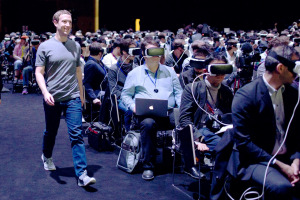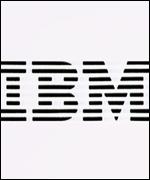
I blame Trump. The Russian manipulation of Facebook made Trump possible. Now tech must live down that legacy.
It means every collection of private data, whether by corporations, government or hackers, whatever the motive, is seen as evidence we need to throw our computers out the window. Every new technology meant to thwart abuse, meanwhile, is seen as a threat to human liberty.
Tech can’t win.
Technology can, in the hands of a ruthless dictator, enable terrible abuses. But there’s a limit.

As technology accelerates this gets easier. It’s why Africa is growing. It’s why India is growing.
All forms of dictatorship are a threat to technology-based society. Without capitalism old 
Most of the Luddite push against the clouds, then, is nonsense. It’s preening by print and broadcast journalists who see the business models of their bosses dribbling away and rage at the dying of its light. But new bosses will emerge.
Technology is like water. It made Russia tear down that wall. It made IBM an also-ran. You can’t stop it. You can only hope to contain it. And that for a very short time.
Consider two recent events, the Russian release of journalist Ivan Golunov and Hong Kong’s backing down from a law allowing automatic extradition of suspects to China.

The biggest wall placed against technology has been erected, in this decade. It’s not in China or Russia. It was erected in Saudi Arabia and other Muslim countries following the Arab Spring of 2011. Religious and secular leaders threatened by change think, as this is written, that they can channel technological change into a direction that won’t threaten them.
They can, but only until the oil runs out. Or technology replaces it. As I have written countless times, technology is in the process of doing just that.

When oil no longer matters, these dictators are doomed.
Dictators have it easier when there is no technology sector to protect. Self-organizing protests in Egypt could be put down, and Sudanese protests may yet be ignored, because the value of human capital there is limited to the value of muscles. Slave societies need only protect resources. This is the message of the late 20th century. Saudi Arabia has no tech sector. Its leadership can do what it wants to its people. Recognizing no limit to ruthlessness has emboldened a new generation of leaders there, and in Venezuela.
But once technology takes hold in a society, once its market imperatives become apparent, dictators are doomed.

Trump is oil’s avatar in our country. He wants to rein in the power of the Cloud Czars, investigate the electronic trails of all those who object to him, and impose a Christian equivalent of Sharia law overseen by oligarchs and military might upon America. It’s a Latin view of dictatorship, the iron triangle of money, military and religious power demanding stability, the eternal maintenance of his allies’ wealth and power.
It can only succeed with oil behind it. It can’t win once technology is unleashed.
By handing $1 trillion of what should be taxpayer buying power to his friends every year, Trump has succeeded in keeping the economy growing for almost two years. But there’s a limit. It’s not just that greed will overwhelm the deflationary impact of technology. It’s that technology can move, technology can evade, and technologists know that they need great people to keep growing.
As much as technology may aid the dictators, the police, and criminals of all kinds, it aids everyone. It empowers every human mind, and it values every intelligent mind. You wouldn’t be reading this if technology didn’t let me publish it for no money. Technology also lets people organize, not just in fancy groups like Facebook, but via simple texts and e-mails that don’t have to say what they mean, badda-bing, badda-boom, in order to be effective.

As I noted last weekl, there is no doubt that the world’s leading technologists support this revolution. The political revolution of technology is about to begin. Those calling technology an instrument of tyranny will look like idiots when it succeeds.










Average people has little control of their destiny, let the leaders be human enough for the society not to suffer in their hands.
Sure, technology is like water, it wants to find its level. But human is more important, let technology not have negative impact in the society as we embrace it.
Average people has little control of their destiny, let the leaders be human enough for the society not to suffer in their hands.
Sure, technology is like water, it wants to find its level. But human is more important, let technology not have negative impact in the society as we embrace it.
“Most of the Luddite push against the clouds, then, is nonsense.”
Are you talking about cloud storage? If so, I’m a Luddite. Why would I turn my PC into a dumb terminal and depend on my not exactly super stable internet connection to store my stuff on someone’s server? That’s just silly.
Have you priced SSDs lately? I bought a 1TB for $157 in October 2018. My hard drive was failing. For Black Friday, I bought another for $135. Plus 2x 500GB at $70 each. All WD Blue 3D NAND. All prices are from Amazon. They had, if not the lowest price, the quickest/cheapest shipping.
The Acronis cloning software you download from Western Digital actually worked. Unlike similar from WD and Seagate ten or so years ago.
The two laptops we almost never use still have spinning metal. I’m not a fan of touchpad mice.
I just looked, the 1TB is now $110.
“Most of the Luddite push against the clouds, then, is nonsense.”
Are you talking about cloud storage? If so, I’m a Luddite. Why would I turn my PC into a dumb terminal and depend on my not exactly super stable internet connection to store my stuff on someone’s server? That’s just silly.
Have you priced SSDs lately? I bought a 1TB for $157 in October 2018. My hard drive was failing. For Black Friday, I bought another for $135. Plus 2x 500GB at $70 each. All WD Blue 3D NAND. All prices are from Amazon. They had, if not the lowest price, the quickest/cheapest shipping.
The Acronis cloning software you download from Western Digital actually worked. Unlike similar from WD and Seagate ten or so years ago.
The two laptops we almost never use still have spinning metal. I’m not a fan of touchpad mice.
I just looked, the 1TB is now $110.